Eleanor Holmes Norton
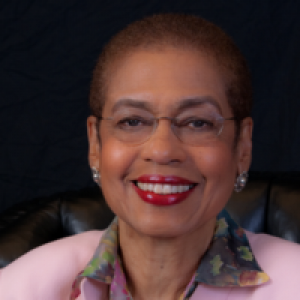
Eleanor Holmes Norton was the first woman appointed to chair the U.S. Equal Employment Opportunity Commission and continues to fight for DC statehood in her third decade as a congresswoman. Her decades-long career as a Black feminist lawyer, civil servant, and educator has and continues to be in service of African Americans, women, DC residents, and other historically disenfranchised people.
Eleanor Katherine Holmes Norton was born in Washington, DC on June 13, 1937 to Vela (nee Lynch) and Coleman Holmes. Her mother was a teacher, and her father was a civil servant. While Holmes was a child, her parents would frequently have conversations with her about segregation and the ongoing Civil Rights Movement. (Bash, 2019) In addition to these conversations, her experiences growing up in segregated DC were formative to her career trajectory as a civil and women’s rights activist (The Voices of Civil Rights, 2004). She attended Paul Laurence Dunbar High School from 1952 to 1956. Formerly known as the M Street High School, Dunbar is also renowned for its long history of distinguished alumni, many of whom went on to attend and graduate from elite colleges when few African Americans went on to earn degrees. In one interview with CNN, Holmes recalled the day that the announcement was made that segregated schools were found unconstitutional by the Supreme Court (Bash, 2019). She was in the last class of students segregated by race, and was quoted stating:
“May 17, 1954. I am sitting in Dunbar High School and the kind of buzzer that comes on where the principal signals as he often did that there was an announcement coming He announced that the Supreme Court of the United States had just found the schools where we are sitting, like Dunbar High School, to be unconstitutional.” - Holmes Norton
Times were rapidly changing as Norton was coming of age, as illustrated by her experiences growing up in segregated D.C.
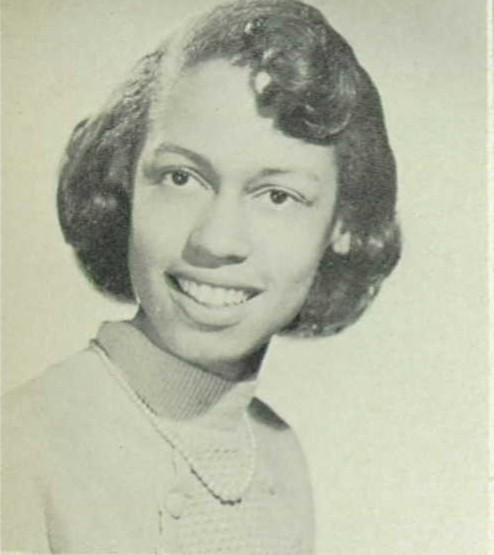
Throughout her years of collegiate and graduate study, Holmes became actively involved in growing Civil Rights organizing. In 1955, Holmes began attending Antioch College in Ohio (The Voices of Civil Rights, 2004). By the time she earned her B.A. in 1960, she organized with the Student Non-Violent Coordinating Committee (SNCC) and had been arrested for organizing and participating in sit-ins in DC, Maryland, and Ohio. Afterward, she went on to attend graduate school at Yale University. While attending Yale to earn her master’s in American Studies and LL.B. in Law, which was the most common law degree during the time. Holmes continued participating in Civil Rights organizing. During the summer of 1963, Holmes spent her summer in the Mississippi Delta participating in Mississippi Freedom Summer with fellow SNCC members. Her first day in the Delta would be marked in history, as she spent most of it with fellow activist Medgar Evers the day he was assassinated (Bash, 2019). She was also mentored by Fannie Lou Hamer that summer and bailed a badly beaten Hamer out of jail. When asked if she was afraid while protesting, Holmes stated:
“I worried a little about getting a record, because I was going to be a lawyer and that could be held against a lawyer. But we thought no one was going to punish us for having arrest records sitting in against injustice. I believed in American justice enough to believe that nonviolent civil disobedience would not ruin my life” (The Voices of Civil Rights, 2004).
She graduated from Yale the following academic year and went on to work for a year as a law clerk for then Federal District Court Judge A. Leon Higginbotham Jr. in Philadelphia (Britannica, 2022).
Holmes’ career as a civil rights attorney caught national attention and her activism continued to grow from the mid-1960s and into the 1970s. In 1965, Holmes married Edward Norton and moved to his hometown, New York City, to serve as the assistant legal director for the American Civil Liberties Union (ACLU). During this time, she distinguished her first amendment specialty through freedom-of-speech cases and her activist background provided opportunities to represent interesting clients in historic moments. In 1968, Holmes Norton made headlines for representing then Alabama governor, George Wallace, in a first amendment case (Britannica, 2022). George Wallace was a pro-segregation legislator who was famously quoted saying, “segregation now, segregation tomorrow and segregation forever” (Bash, 2019).
1970 was a landmark year as the beginning of Holmes Norton’s feminist activism. That year, she represented a group of 60 women employees in an unprecedented class action lawsuit against Newsweek, claiming their refusal to hire women as journalists violated the 1964 Civil Rights Act. She won her case, changing sex discrimination laws in the entire news industry and paved the way for more women to be hired in major news outlets (Georgetown Law, 2019). She left the ACLU and became the first woman to head the New York City Commission on Human Rights. In the same year, Holmes Norton also contributed an essay titled “For Sadie and Maud” to Sisterhood is Powerful: An Anthology of Writings From The Women’s Liberation Movement. This feminist manifesto detailed the experiences of women contributing to the second wave feminist movement.
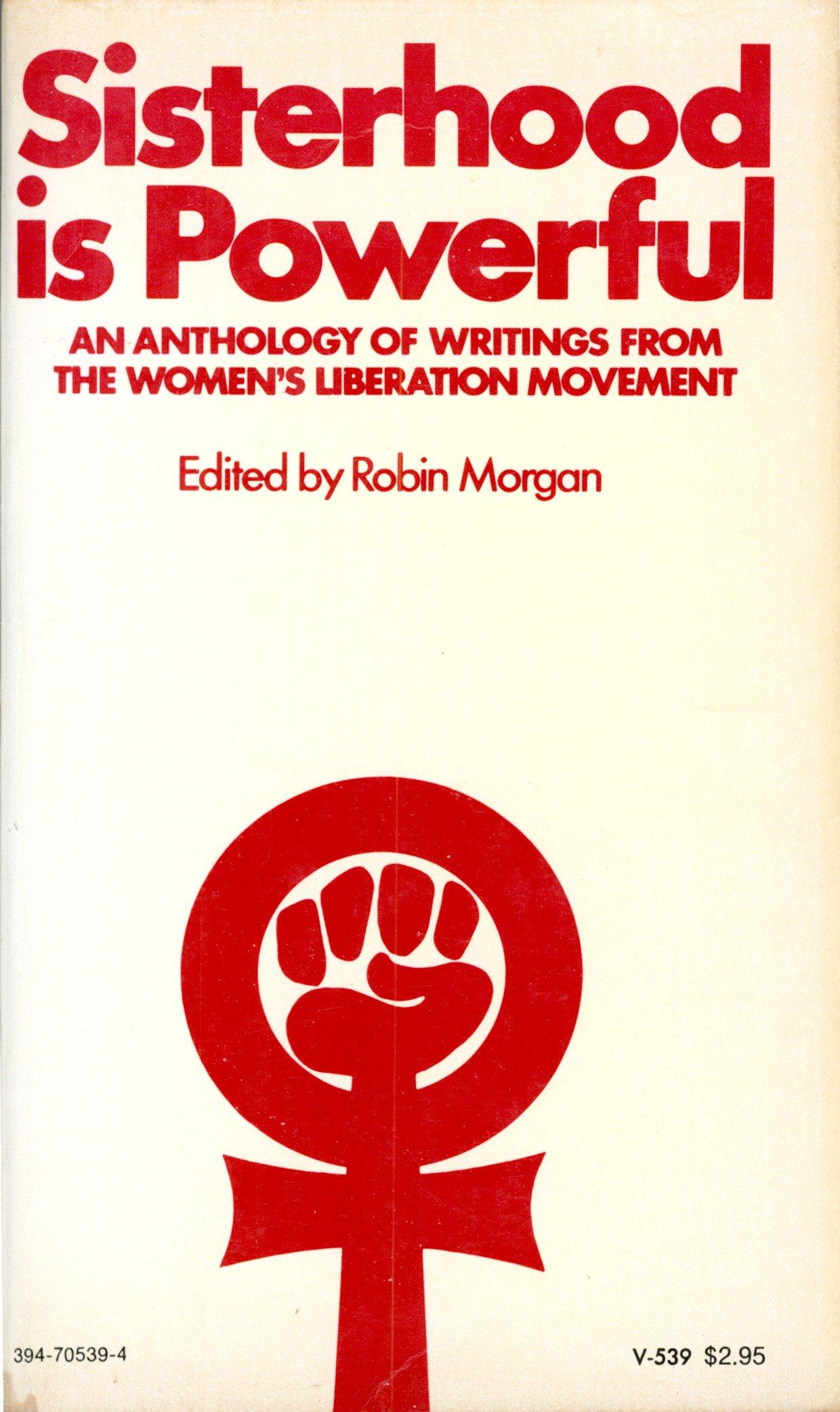
Norton was also the keynote speaker at the National Black Feminist Organization’s founding conference (1973) and has been a long-time advocate for reproductive freedom.
President Jimmy Carter appointed Holmes Norton chairperson of the Equal Employment Opportunity Commission in 1977. She held this position until 1981. She was the first woman appointed to this position and made unprecedented changes to sex discrimination laws:
“Before the EEOC guidelines, sexual harassment was not considered sex discrimination. When we did this, we were in uncharted territories. Was it discrimination against a woman to harass her? We said of course, it’s because of sex. We had to put it in guidelines and they had to go all the way to the Supreme Court” -- Holmes Norton (Bash 2019).
Following the end of her EEOC tenure, Holmes Norton became a professor at Georgetown Law in 1982. In her years at Georgetown, she co-launched the Free South Africa Movement with a sit-in at the South African Embassy. Students, faculty and elected officials in DC participated in demonstrations alongside Holmes Norton and other leaders in November of 1984 (Ingeno, 2013). Their sit-ins were a success, as they sparked national interest in how South African activists, including Nelson Mandela, were being treated while imprisoned. She continued to teach at Georgetown Law through 2018, after which she became Professor Emerita.
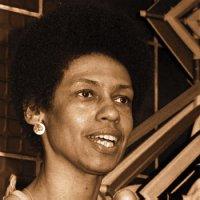
Since 1991, Holmes Norton has served as Washington DC’s delegate to Congress. In this role, she continues her multi-decade advocacy career DC She has served more than 17 terms and brought unique economic benefits to her constituents, despite DC not being a state (Bash, 2019). She has and continues the uphill fight to gain statehood for DC, but also has an impressive set of legislative successes under her belt in combination with her service on the Committee on Oversight and Reform and the Committee on Transportation and Infrastructure (“Full Biography”). In the true spirit of a lifelong activist, when she is not on Capitol Hill, she is meeting with her constituents and still attending rallies for matters that mean the most to her.
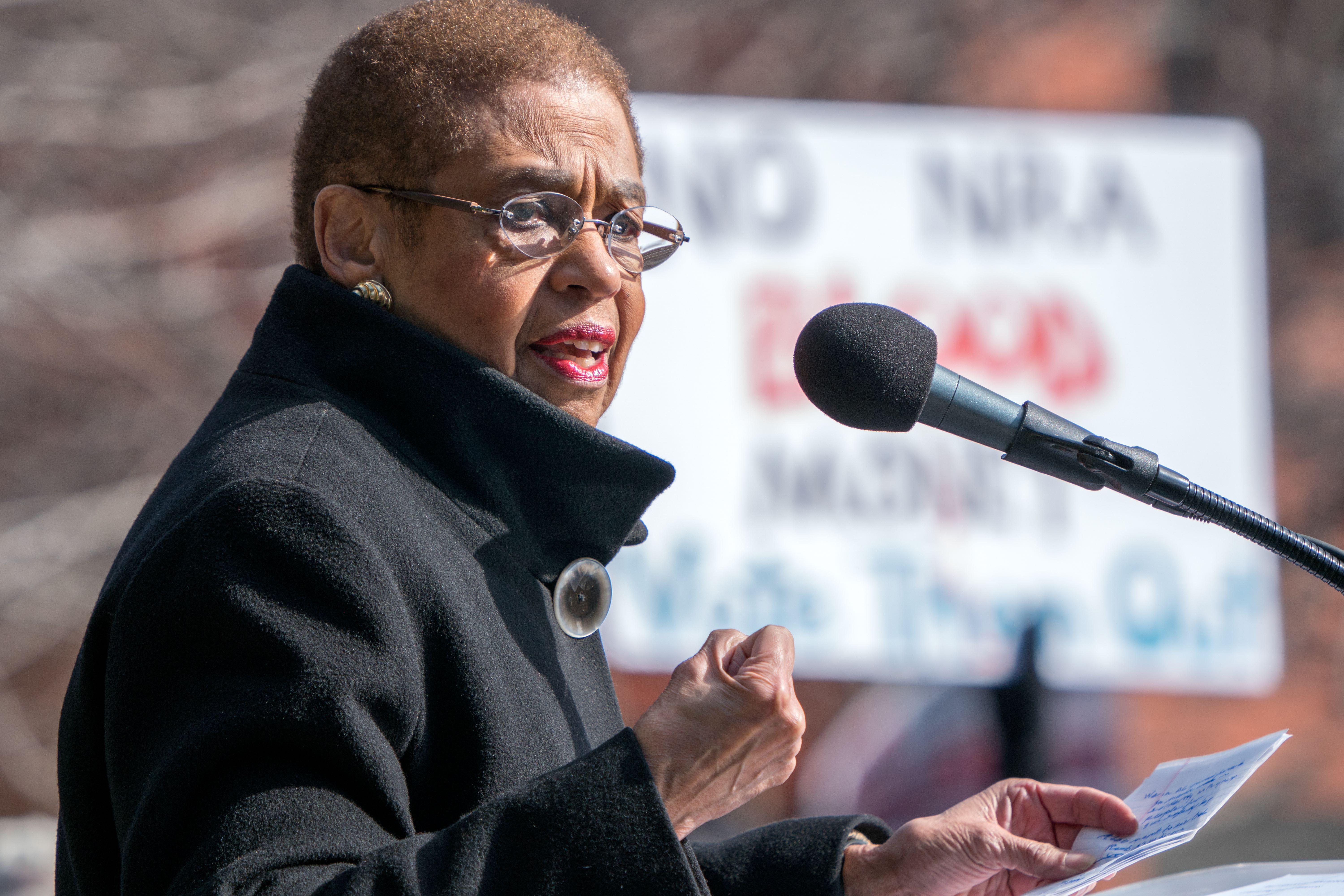
Eleanor Holmes Norton has credited participating in the great movements of her time to being “simply born in the right generation” (Voices of Civil Rights, 2004). She has not only organized alongside and been mentored by many changemakers, but now serves as a mentor to the next generation of activists and advocates.
- Bash, Dana. “Eleanor Holmes Norton's Fight for Equal Pay in 1970 Still Resonates Today.” CNN. Cable News Network, July 12, 2019. https://www.cnn.com/2019/07/12/politics/eleanor-holmes-norton-badass-women-of-washington/index.html.
- Britannica, T. Editors of Encyclopaedia. "Eleanor Holmes Norton." Encyclopedia Britannica, June 9, 2022. https://www.britannica.com/biography/Eleanor-Holmes-Norton.
- First Amendment and Freedom. C-SPAN, 2019. https://www.c-span.org/video/?467305-1%2Fnewseum-forum-amendment-freedom.
- “Full Biography.” Representative Eleanor Holmes Norton, January 6, 2023. https://norton.house.gov/about/full-biography.
- “Georgetown Law Dedicates ‘Tower Green’ to Congresswoman Eleanor Holmes Norton (D-D.c.)(Professor Emerita, H'18).” Dedicates "Tower Green" to Congresswoman Eleanor Holmes Norton (D-D.C.)(Professor Emerita, H'18). https://www.law.georgetown.edu/news/georgetown-law-dedicates-tower-green-to-congresswoman-eleanor-holmes-norton-d-d-c-professor-emerita-h18/.
- Ingeno, Lauren. “Looking Back: In Washington, D.C., Activists Campaigned to End Apartheid: GW Today: The George Washington University.” GW Today. https://gwtoday.gwu.edu/looking-back-washington-dc-activists-campaigned-end-apartheid.
- “‘I Was Able to Participate in the Great Movements of My Time’: An Interview with Congresswoman Eleanor Holmes Norton.” Voices of civil rights :: The voices of Civil Rights at 50. AARP, the Leadership Conference on Civil Rights (LCCR), and the Library of Congress, 2004. https://web.archive.org/web/20090202051326/http://voicesofcivilrights.org/civil3.html.
- “Norton Celebrates the 25th Anniversary of Her South African Embassy Sit-in Launching (12/15/09).” Representative Eleanor Holmes Norton, December 16, 2009. https://norton.house.gov/media-center/press-releases/norton-celebrates-the-25th-anniversary-of-her-south-african-embassy-sit.
Image Citations:
-
Entry of Eleanor K. Holmes (later Norton) in the 1955 Dunbar High School yearbook, May 1955. (Source: https://upload.wikimedia.org/wikipedia/commons/6/6c/Eleanor_K._Holmes_entry_in_Dunbar_1955_yearbook.jpg)
-
Image of a book with white cover and red font. The book is titled “Sisterhood is Powerful:” An Anthology of Writings From The Women’s Liberation Movement. (Source: https://commons.wikimedia.org/wiki/File:Robin_Morgan_-_Sisterhood_Is_Powerful.jpg)
-
Eleanor Holmes Norton as Chair of the EEOC, 1977. (Source: https://upload.wikimedia.org/wikipedia/commons/7/7d/Eleanor_Holmes_Norton_Chair_EEOC.jpg)
-
Eleanor Holmes Norton at Rally for DC Lives before March For Our Lives, Washington DC. March 24, 2018. (Source: https://upload.wikimedia.org/wikipedia/commons/9/9e/Eleanor_Holmes_Norton_at_Rally_for_DC_Lives_before_March_For_Our_Lives%2C_Washington_DC_-_40101294925.jpg)
MLA – Cannon, Jasmine Daria. “Eleanor Holmes Norton.” National Women’s History Museum, 2023. Date accessed.
Chicago – Cannon, Jasmine Daria. “Eleanor Holmes Norton.” National Women’s History Museum. 2023. https://www.womenshistory.org/education-resources/biographies/eleanor-holmes-norton.
Main Image Citation: Eleanor_Holmes_Norton_official_photo. https://upload.wikimedia.org/wikipedia/commons/a/ad/Eleanor_Holmes_Norton_official_photo.jpg
- Watch an interview with Eleanor Holmes Norton, discussing Affirmative Action and her anti-South African Apartheid activism: http://repository.wustl.edu/concern/videos/g445cj02m
- Read more about Congresswoman Holmes Norton’s Legislative History: https://www.congress.gov/member/eleanor-norton/N000147
- Watch Eleanor Holmes Norton discuss the first amendment and freedom at the Newseum: https://www.c-span.org/video/?467305-1%2Fnewseum-forum-amendment-freedom




